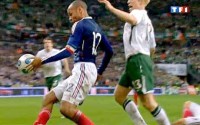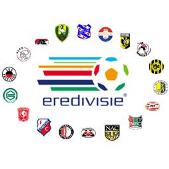
Unfortunately justice, fair play and integrity have been the big losers during and following the recent France Ireland match in which the latter was robbed from participating in the World Cup in South Africa after Thierry Henry’s controversial handball. Undoubtedly the call for electronic (video) aids will re-vive again and surely pressure on the almighty and isolated FIFA to implement such devices will once more increase. It is to hope that this injustice will indeed turn into a catalyst for change, sadly at the expense of the Irish.
It had to happen sooner or later…..qualification for the Worldcup at stake and a wrong and unfair decision in extra time, as a result of which the cheating party turns out to be the winner. However, we have to realize that unfair decisions happen all the time. Each and every weekend there are wrong decisions made by referees, who are just human. As a consequence each time there are teams treated unfairly. Clearly in the France Ireland game things have been magnified as it was such an all-important game. There have been precedents; who does not remember the hand of “God Maradona”, but this was in an era in which electronic aids were not an issue yet.
France Ireland proves electronic aids should be implemented rather sooner than later. Let’s examine the reasons why….
1. Modern football has changed: football nowadays has become much quicker and more physical. It has become increasingly difficult for referees to notice everything
2. Football has become big business: football has become ever more important in our society. At top level huge amounts of money are at stake and world cup participation even stimulates the local economy. An unfair decision can literally costs loads of money.
3. Fairness of the game: football players are nowadays often role models for kids. Integrity, fairplay and justice hence should be important values of the game and the players participating in it. Inconsistency with these values is not the message you want to send to young adults. If cheating is rewarded, these values are meaningless.
Hence it is time that FIFA is wakening up. So far it has shown it is disconnected with the real world. FIFA claims that a decision made by a referee cannot be overturned again after a match. But what about players making a serious foul during a match unnoticed by the referee? If registered on camera, they often will get suspended anyway. So FIFA seems to be inconsistent to some extent. Why not introducing electronic aids during a game? Trainers, managers, football players, referees, icons and clubs, all have been arguing for this, but Blatter and friends remain sham deaf so far. Let us briefly stand still by the core values of FIFA:
Authenticity. Football must remain a simple, beautiful game played by, enjoyed by and touching the lives of all people far and wide. Indeed football is touching the lives of many, if it wants to come across as authentic it should at least be played according to the rules. This pleads for electronic aids, at least at the porfessional level (which is acting as billboard)
Unity. It is FIFA´s responsibility to foster unity within the football world and to use football to promote solidarity, regardless of gender, ethnic background, faith or culture. Unity and solidarity are far from being realised with decisions such as the one in the France Ireland match.
Performance. FIFA must strive to deliver football of the highest quality and as the best possible experience, be it as a player, as a spectacle, or as a major cultural and social enabler throughout the world. Again this value speaks against the recent controversy. This barely can be seen as high quality and being a social enabler in the world.
Integrity. FIFA believes that, just as the game itself, it must be a model of fair play, tolerance, sportsmanship and transparency. No comments needed on this one I believe.
In any case it is about time that the dinosaurusses of FIFA leave their ivory tower mentality behind and starts talking with its stakeholders. Rugby, tennis and several other sports are proving electronic aids are functioning properly and improve fairness. It is to hope that the France Ireland match is a catalyst for implementing these aids, sadly too late for the Irish.See poll
